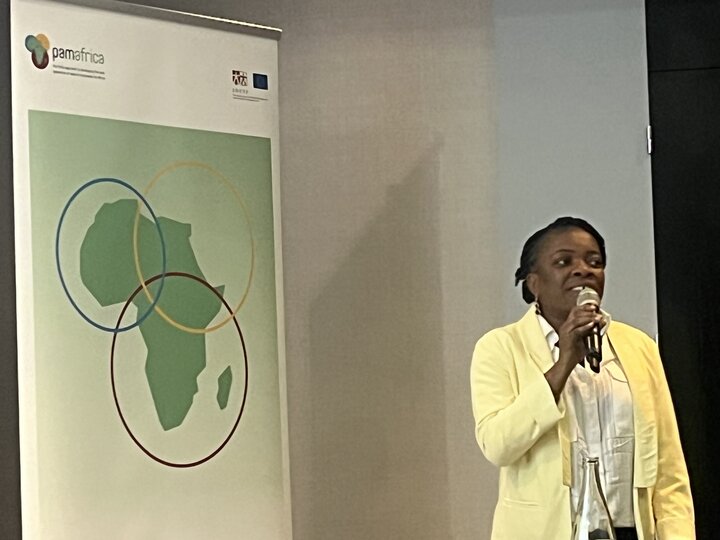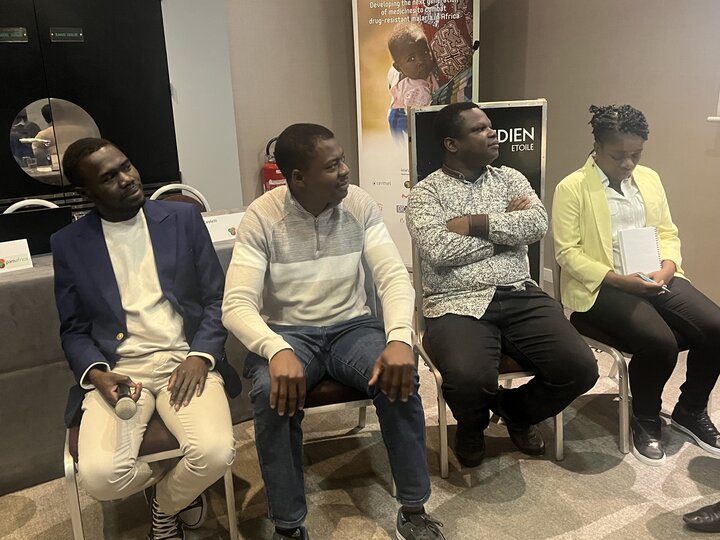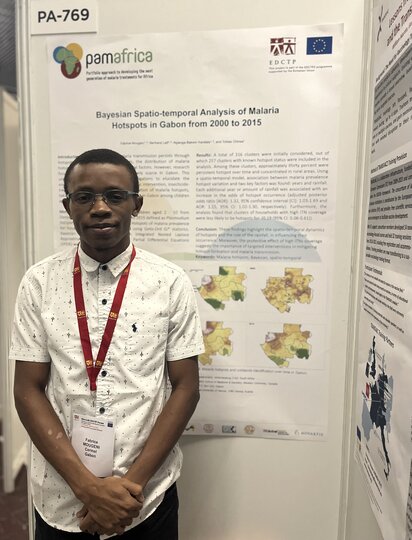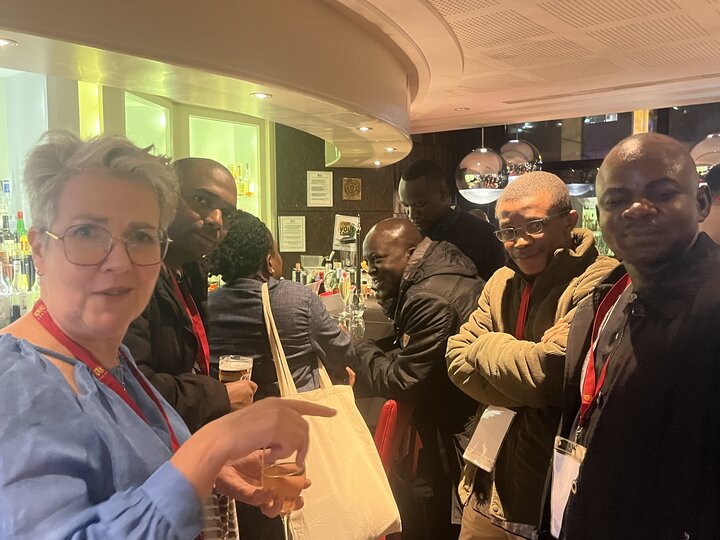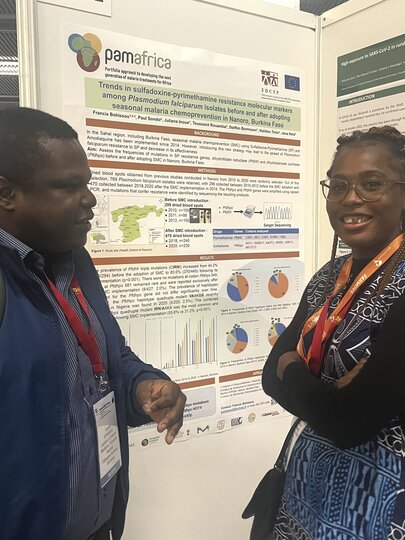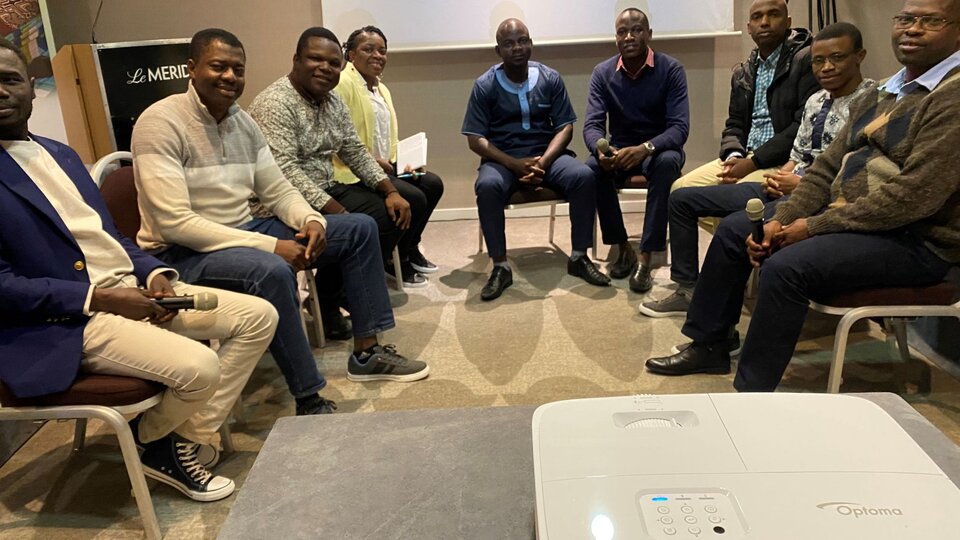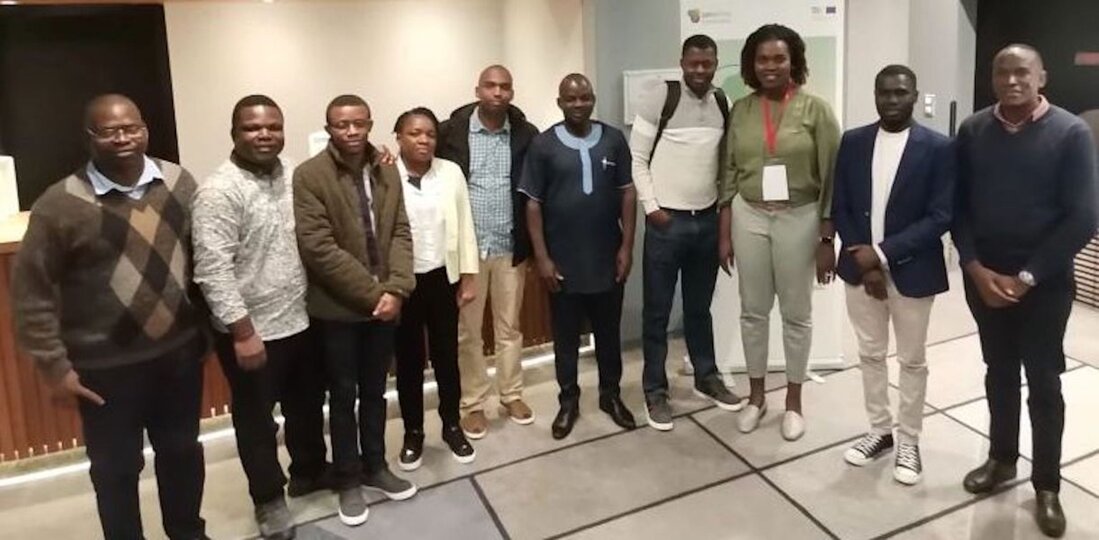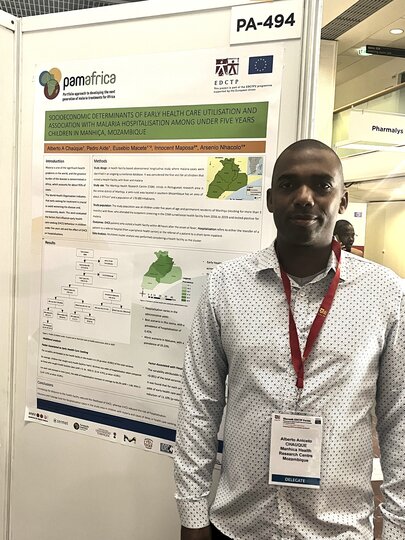Nurturing the next generation of African researchers
Beyond strengthening research capacity at trial sites, the goal of the PAMAfrica Consortium’s Work Package 4 is to help develop future leaders in science through long-term academic training. To this end, 11 candidates (six MSc and five PhD) representing the five African consortium partners have been selected to pursue their studies through the PAMAfrica grant.
A strong technical foundation is essential for the next generation of African researchers, but true leaders and pioneers possess intangible skills that are often acquired outside the classroom or lab. This is why inviting the students to participate in the 3rd Annual Consortium Meeting and 11th EDCTP Forum was so important – it gave these young scientists an opportunity to build these intangible skills by sharing their research with seasoned peers, expanding their professional circles and networking in informal settings.
Nine students attended the Annual Consortium Meeting in person and the other two attended virtually. During a panel discussion hosted by Dr Helen Demarest, the students shared some challenges they have faced in academia, from gaining access to graduate studies to pursuing their degrees far away from home in a foreign culture and language. This last challenge – and how it is being overcome – was on full display when Fabrice Mougeni, Alberto Chauque and Emma Malinga presented their research to the room full of annual meeting participants.
At the EDCTP Forum itself, six of the students in attendance made poster and oral presentations, giving them another valuable opportunity to engage with fellow students, experienced researchers and forum participants. PAMAfrica’s Grant Management Team also organized an informal evening get together with students and senior researchers, which led to animated discussions about career aspirations and the future of African research, and forging new connections along the way.
Experiencing the passion each student has for their work, the roles they are eager to play in the shifting landscape of research in Africa and the ways they can contribute to better healthcare interventions and outcomes on the continent was truly inspiring. We hope that the experience was rewarding for them, too.
